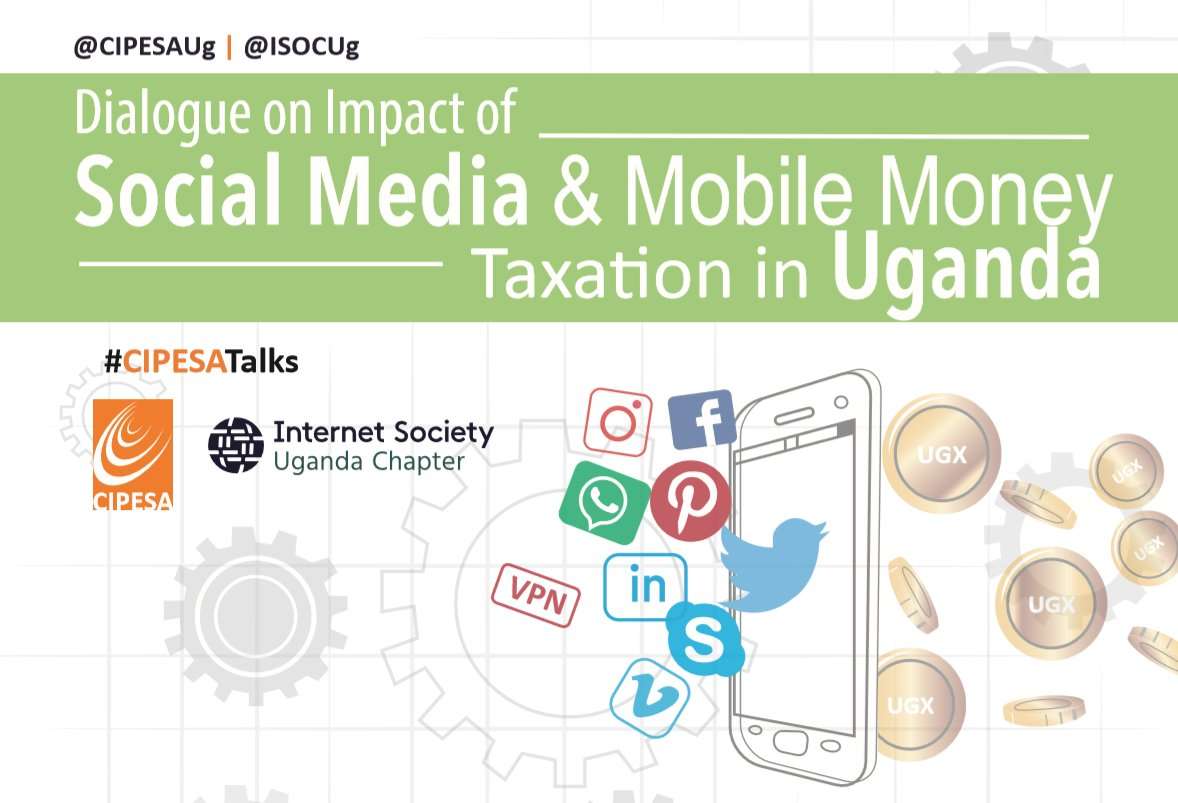CIPESATalks |
The evolution of the digital economy in Uganda over the last 20 years has broken barriers associated to geography and time and thus enabled information flows critical for business processes, innovation, entrepreneurship, civic participation, learning and research, and government service delivery.
Following concerns on the growing public debt bill, and a constrained tax base, the Uganda government introduced a raft of taxes in the Excise Duty Act (Amended), notably on Over the Top (OTT) services and mobile money transactions. Beginning July 1, 2018, users must pay a tax of UGX 200 (USD 0.05) per day to access various social media platforms including Facebook, WhatsApp, Twitter and LinkedIn. For mobile money, a 1% levy applies to deposits and withdrawals, on top of a revised excise duty of 15% up from 10% on transfers. These taxes pose a huge threat on internet access and affordability, and financial inclusion for low income and marginalized groups such as women, youth and rural communities. In fact, the Alliance for Affordable Internet (A4AI) estimatesthat the social media tax will cost Uganda’s poorest up to 40% of their average monthly income to buy a basket of 1GB of data.
Accordingly, CIPESA in partnership with the Internet Society Uganda Chapter seeks to convene stakeholders to deliberate on the economic, social and human rights impact arising from the new taxes. The dialogue will deliberate on how policy making processes can advance inclusive and equitable access to the internet, promote innovation and consumer rights protection. The dialogue builds on previous ones convened by CIPESA, for multiple stakeholders in the ICT eco-system.
See full agenda here.

